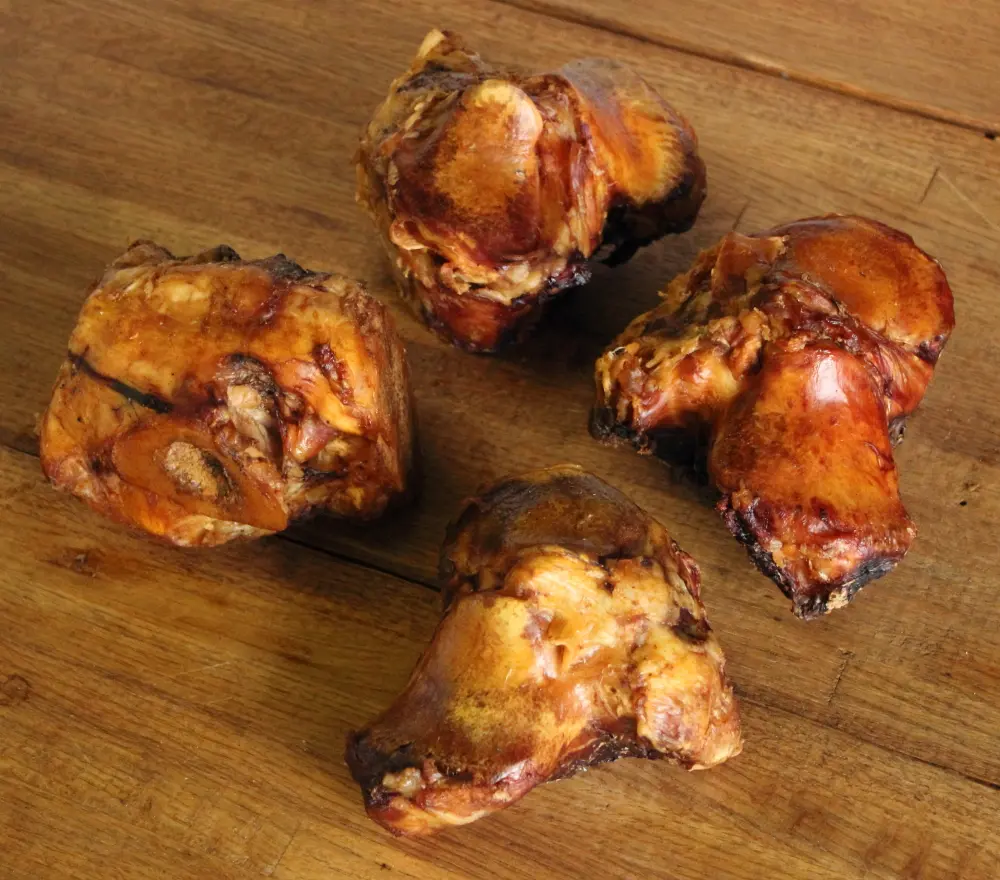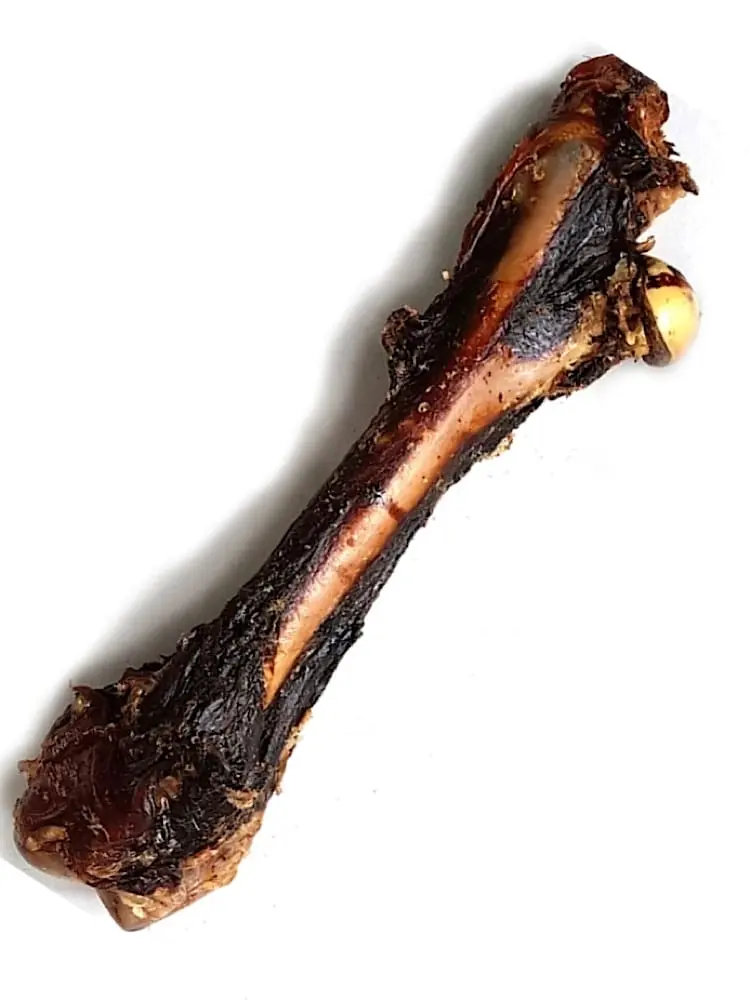Our dogs bring us endless joy and companionship, and it's only natural that we want to give them something in return. One of the most iconic images associated with dogs is a dog happily chewing on a bone. Chewing on bones not only satisfies a dog's natural desire to chew, but it can also provide them with essential minerals and nutrients. However, when it comes to choosing the right type of bone for your furry friend, it's important to consider their safety.
Are Smoked Bones Safe for Dogs?
For many years, smoked bones have been considered a safe and enjoyable treat for dogs. However, recent evidence suggests otherwise. The FDA has received over 60 reports this year alone related to smoked bones purchased from pet stores or online retailers. Additionally, rawhides, another popular chew for dogs, have been subject to recalls due to possible chemical contamination and pose a choking or intestinal blockage risk. If your dog loves these types of chews, there are alternative options available.
Are Roasted Dog Bones Safe?
While bones can provide essential nutrients and help maintain dental health, they can also pose potential hazards to dogs. It's essential to consider the following potential health risks when deciding to give your dog a bone:
- Fatty Bones and Pancreatitis: Rib bones, especially pork rib bones, are high in fat, which can lead to pancreatitis in dogs. Pancreatitis is an inflammation of the pancreas and can range from mild to severe, with symptoms including vomiting, lethargy, diarrhea, and loss of appetite.
- Shattering and Damage: Cooked bones can splinter into sharp shards, posing a choking hazard and causing serious damage to the mouth, throat, or intestines. Cooking also removes nutrients from the bone.
- Choking Hazards: Bone fragments can easily get lodged in a dog's throat, blocking the airways and creating an emergency situation. These fragments are typically sharp and can cause cuts and punctures in the mouth, stomach, and intestines.
- Blockages: There is a high risk of bone chunks causing blockages in the intestines, leading to severe illness and potentially death.
- Stomach Irritation: Bones and their marrow can cause diarrhea and further irritate sensitive stomachs.
Tips for Giving Your Dog a Bone
If you still choose to give your dog a bone, it's important to follow these safety guidelines:

- Ask your vet about the safety of raw meat bones, as they may carry bacteria like salmonella and could damage your dog's teeth if too hard.
- Only give your dog a bone if they are alone, as even friendly dogs can become protective of their bones.
- Offer a bone after a meal when your dog is already full, so they are less likely to chew it quickly.
- Remove the bone from your dog after 10 to 15 minutes of chewing and refrigerate it to prevent excessive consumption.
- Dispose of the bone after three or four days to avoid bacterial growth and potential intestinal problems.
- Choose bones that are larger than your dog's muzzle to prevent them from swallowing the bone whole.
- Supervise your dog while they chew on a bone and be prepared to remove it if it breaks apart or becomes too small.
Consider Bone Alternatives
If you want to play it safe, consider providing commercially available chew toys and simulated dog bones that are specifically made for dogs of all sizes. These alternatives can still satisfy your dog's chewing needs without the potential risks associated with real bones.
Frequently Asked Questions
What are smoked bones made of?
Smoked bones can be made from various animal sources, such as beef, pork, or chicken. The smoking process adds flavor and can make the bone more appealing to dogs. However, it's important to note that recent evidence suggests potential risks associated with smoked bones.
Can dogs eat smoked kangaroo bones?
Yes, dogs can eat smoked kangaroo bones. Smoked kangaroo bones are sustainably sourced from the Australian Outback and are high in iron and low in fat. They provide dogs with essential proteins and minerals that support a healthy immune system while promoting dental health by removing tartar and plaque.

In Conclusion
While smoked bones have long been considered a safe treat for dogs, recent evidence suggests otherwise. Cooked bones, including smoked bones, can pose potential hazards such as splintering, choking, and blockages. It's essential to consider the health risks and follow safety guidelines when giving your dog a bone. Alternatively, there are commercially available chew toys and simulated dog bones that can provide the same chewing satisfaction without the potential risks.
If you want to know other articles similar to Are smoked bones safe for dogs? potential hazards and bone alternatives you can visit the Dog bone safety category.

